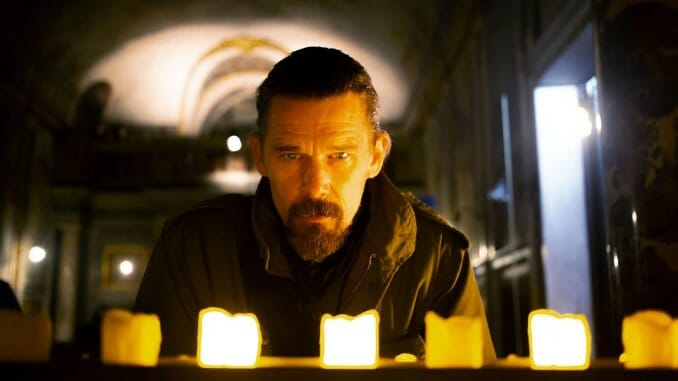Abel Ferrara’s Cryptic COVID-Era Film Zeros and Ones Is Hypnotic and Unhurried

Prolific cult filmmaker Abel Ferrara’s penchant for artistic abstraction lives on in Zeros and Ones, the director’s meandering effort in pandemic cinema. Ferrara shot on the freshly vacant streets of Rome—the city he’s lived in since the early 2000s—during lockdown, the city itself being the only formidable presence in the film aside from leading man Ethan Hawke. In fact, Hawke portrays three distinct roles in the film: That of a grizzled military man; a radical political prisoner; and the actor Ethan Hawke himself. Though Hawke’s multifaceted performance is masterful, an overall sluggish pace and half-baked intellectual rumination obscure any genuine insights being made by Ferrara on the current state of the world.
-

-

-

-

-

-

-

-

-

-

-

-

-

-

-

-

-

-

-

-

-

-

-

-

-

-

-

-

-

-

-

-

-

-

-

-

-

-

-

-








































